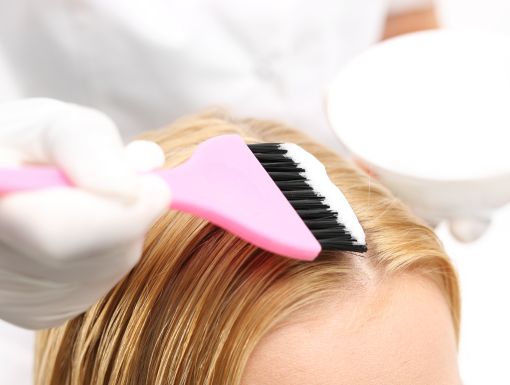
Why is My Hair Falling Out?
Hair loss, also known as alopecia, can occur at any age and when it happens, it can be devastating. While some hair loss is temporary, some can be permanent. That’s why it’s essential to talk to a dermatologist to help prevent hair loss and possibly regrow the hair that has been lost.
What causes hair loss?
On average, people can lose up to 100-150 strands of hair per day. Alopecia is diagnosed when a person loses more than 150 hair strands per day. This is typically identified as hair falling out or breakage of the hair shaft.
There are many causes of alopecia. According to “Dermatology” by Jean Bolognia, MD, the most common type of hair loss is telogen effluvium, which is the shedding of hair on top of the scalp. This condition is associated with systemic diseases (diseases that affect the whole body) or certain types of medications. Your hair can fall out after having a baby, severe illnesses such as thyroid abnormalities or viral infections, major surgeries or significant weight loss. While many medicines can cause hair loss, the most common ones include isotretinoin, which is used to treat acne; anticonvulsants; and antithyroid medications or the discontinuation of oral contraceptives.
Another common type of hair loss is alopecia areata. This pattern presents as coin-shaped bald patches of hair on the scalp, eyebrows or beard. Alopecia areata is commonly associated with thyroid diseases, vitiligo and inflammatory bowel disease. Sustained high-stress levels also lead to this pattern of hair loss.
Alopecia can also be hereditary, such as androgenetic alopecia, which is male or female pattern hair loss. In men, a receding hairline is common. In women, there is typically a widespread thinning of the hair, especially where the hair parts.
Typically, your dermatologist will obtain a thorough history and an in-depth examination of the scalp hair to determine the cause. A scalp biopsy to examine the hair follicles at a microscopic level can also be informative.
Treating hair loss
The first step to treating alopecia is to determine the cause of the hair loss. Once the cause is determined, your dermatologist will lay out a treatment plan. If the alopecia is due to a systemic disease or medication, treating the abnormality or changing the medication may improve your hair’s state. Below are a few examples of treatment options that can be used depending on the cause of alopecia.
- Minoxidil: This is available in topical and oral forms. The topical version may be purchased over the counter. The most common side effect is scalp dryness or irritation. Worsening of hair loss may be seen within 4-6 weeks of treatment but this usually resolves with continued treatment.
- Finasteride: This is available in topical and oral forms. Common side effects include decreased libido and erectile dysfunction. Continued use of this medication is required to sustain regrowth and stopping treatment will result in hair loss.
- Spironolactone: This is available in oral form. This medication works by binding to the androgen receptors and inhibiting androgen production. Androgen is the hormone that, if in excess, can lead to hair loss. The most serious common side effect is retaining potassium. It is advised that patients avoid any potassium supplements while on this medication.
- Corticosteroids: This is available in oral, topical and injection forms. The severity of the condition typically dictates which forms your dermatologist will offer.
- Hair transplantation: This is a surgical procedure that can yield permanent, natural-looking results.
Haircare tips
While it is important to seek treatments early, it is crucial to adopt hair practices to prevent damaging your hair. Make sure to avoid using harsh hair products. Excessive bleaching, dying hair or perms can cause the hair to become brittle. Frequent use of heat from blow-drying or straightening of hair can cause microscopic bubbles within the hair shaft and lead to breakage. It is also recommended to limit tight hairstyles, such as braids or ponytails that tug the hair root.



